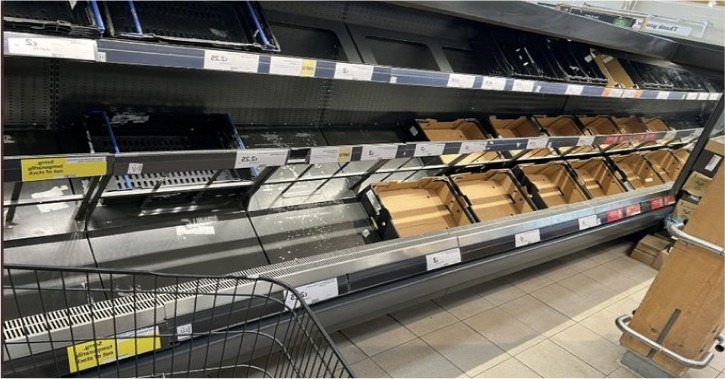
Britain’s inflation rate unexpectedly rose in February, surprising analysts and increasing pressure on the Bank of England to raise interest rates at its meeting on Thursday. The consumer price index (CPI) jumped to 10.4% in the 12 months through February, up from 10.1% the previous month, according to the Office for National Statistics.
The rise in inflation is the first increase in four months, and it is more than five times higher than the Bank of England’s target of 2%. High energy prices continued to squeeze household budgets, contributing to the rise in inflation. Economists predict that prices will drop rapidly later in the year, but the Bank of England will need to weigh the need to control inflation against concerns about the fallout from global banking troubles.
The Bank of England has approved 10 consecutive rate increases since December 2021, pushing its key bank rate to 4%. Michael Hewson, chief analyst at CMC Markets UK, anticipates that the Bank of England will raise rates by at least a quarter of a percentage point. In a note to clients before the inflation figures were released, Hewson said, “A base rate of 4% barely seems adequate to act as a drag on this measure of price rises and will still increase the pressure on the Bank of England to raise rates on Thursday.”
The Bank of England’s decision to raise interest rates could have a significant impact on the economy and households across the country. While it may help to control inflation, it could also make borrowing more expensive and reduce consumer spending, potentially leading to slower economic growth.
The Bank of England’s meeting on Thursday is crucial, and all eyes will be on its decision regarding interest rates. With inflation on the rise and concerns about global banking troubles, the central bank will need to carefully consider its options before making any decisions that could have a significant impact on the UK economy.
The UK economy has been recovering from the COVID-19 pandemic, but rising inflation and global banking troubles threaten to derail the progress that has been made. The Bank of England’s decision on interest rates will be a crucial factor in determining the direction of the economy in the coming months.
The rise in inflation is also likely to have an impact on consumers, who are already facing higher prices for essentials like food and energy. A rise in interest rates could further increase the cost of living, making it more difficult for households to make ends meet.
The Bank of England’s decision will also be closely watched by investors, who will be looking for clues about the future direction of the economy. A decision to raise interest rates could lead to increased volatility in the financial markets, as investors adjust their portfolios in response to the new economic environment.
Britain’s unexpected rise in inflation has increased pressure on the Bank of England to raise interest rates at its meeting on Thursday. With inflation more than five times higher than the Bank of England’s target of 2%, the central bank will need to carefully consider its options before making any decisions that could have a significant impact on the UK economy.
Investors and consumers will also be closely watching the Bank of England’s decision, as it will have implications for the financial markets and the cost of living in the UK.
